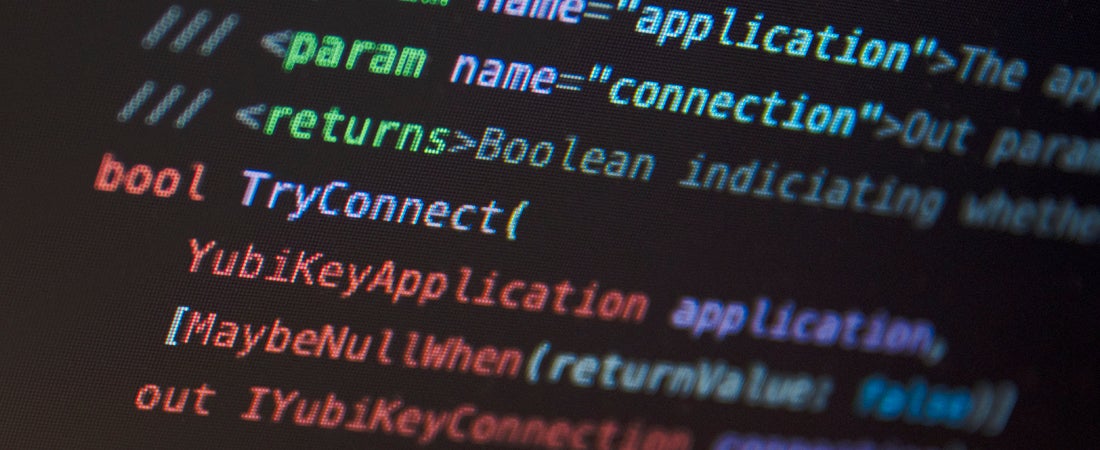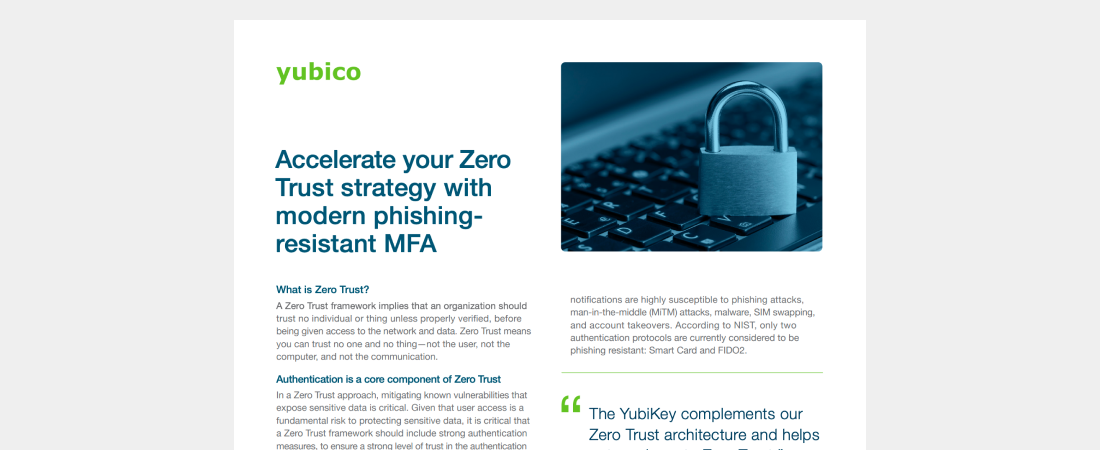Today, we are excited to announce the general availability of the YubiKey SDK for Desktop that went into public beta in June 2021. It’s an exciting time for Yubico as we launch a key piece of our software portfolio that our enterprise customers and partners have been testing with us that is now ready for production deployment. As announced in our beta, our family of SDK software now supports Windows and macOS for enterprise developers to build apps for a seamless secure experience for employees and customers.
Building on the trust that Yubico has earned in the security industry, and in line with our mobile SDK strategy, the Yubikey SDK for Desktop is now available both as a downloadable software through NuGet as well as an open source GitHub project. Documentation for the project can be viewed here.
The YubiKey SDK portfolio supports leading operating systems, including iOS, Android, Windows, and macOS. Our customers have been on this journey with us as they begin SDK integrations on one platform (mostly mobile). However, due to growing compliance reasons, the need for consistent user experiences, and the growth in bring your own device (BYOD) programs, the ability to quickly expand to other platforms has become a requirement.
The YubiKey SDK for Desktop unlocks unique use cases:
Smart Card self service
- Enterprises are integrating our Windows and macOS SDK offerings to build web apps that enable employees to use their YubiKeys as smartcards for strong security and self management of smartcards.
Fast task switching on shared desktops
- Manufacturing
- Manufacturing floors and warehouses often need fast and seamless NFC-based experiences that are highly secure. This meets the compliance needs around prohibiting the usage of mobile phones or USBs.
- Healthcare
- Healthcare companies need to offer their workers fast and seamless NFC-based tap in and tap out experiences that are secure for maximum efficiency, while maintaining high security.
- Doctors can also re-authenticate and conduct step-up authentication multiple times in one patient session to prescribe medications, update medical history, etc.
Document signing
- Aviation and public sector companies have requirements to securely sign documents across multiple platforms including mobile devices.
Watch this space as we dive deeper into these use cases with you in the coming months. To get started and explore all assets, documentation and webinars, please visit https://www.yubico.com/products/software-development-toolkits-sdks/.


